A Sustainable Virtual Marketplace:The Maiyet Collective
Image: Mehrotra
The Maiyet Collective combines physical pop-up stores across the UK with a freshly launched digital retail experience. Their new curated online marketplace, brings together ‘international conscious and positive impact fashion brands’. It’s the sustainable virtual marketplace of the future.
Image: @maiyet featuring @charliemay
Pre lockdown they regularly hosted physical pop-up stores across the UK with a focus on experience and interaction. Post lockdown they have moved into the online arena to bring their intelligent concept to a wider audience. The Maiyet Collective was founded by Paul Van Zyl, who firmly believes that “the future of fashion will require the perfect blend of ethics and desire, equally with design and sustainability”. The COVID 19 pandemic has shifted the paradigm of how we shop and what we value. These shifts provide an opportune space in the market for a destination which combines these factors. “We live in an entrepreneurial moment: people are coming together and harnessing their powers to incubate a series of really amazing changes in the fashion industry, the human rights world, and beyond… real change is in our grasp” says Paul. Here is our round-up of some of the new incredible offerings that you can find in their beautifully curated selection!
Oyuna
We spoke to Oyuna Tserendorj, the mind behind the cashmere brand Oyuna. Being a Mongolian, growing up with cashmere and living in London, were the “natural precursors to what she does now. ‘I represent Mongolia in a very small way, through my brand.”
What’s Oyuna’s production process?
One of the main factories we work with is a fully integrated factory in Mongolia that collects cashmere directly from nomads and turns our designs into products. Our factory partially buys sustainable cashmere fibre from nomads, who are part of the Sustainable Fibre Alliance, of which we are members.
TV: Why is sustainability a core value for your brand?
I want to be part of a sustainability journey that would preserve the unique beauty of Mongolia for generations to come. I want my childrens’ children and their children to experience what Mongolians can experience today: a vast and free land with no fences, steppes full of aromatic wild herbs, mountains with wildlife and nomads with centuries-old traditions.
TV: How would you describe an investment piece?
A piece that you pull out with your eyes closed, a piece that is made to last. A piece that both a mother and daughter would like to wear.
TV: Where do you draw inspiration from?
It can be a piece of art or a rainbow or an object like a slingshot. That’s what’s nice about inspirations – they can come from anywhere or anytime.
Oyuna in three words?
Quiet. Confident. Timeless.
Ethical Kind
Silk is in Lily Chong’s DNA. The founder of Ethical Kind grew up with a single mother who worked as a seamstress and lived with her grandparents, whose family heritage was in silk farming in South China. “I vividly recall my mother making my clothes at night, the comfort I sought sleeping in silk and my grandmother who relished eating fried silkworm larvae for breakfast.” It was later in her adulthood while working for an NGO that she fully understood the meaning of business with an impact on social good. Having uncovered the cruel process used in conventional silk making, where billions of silkworms are boiled alive inside their cocoons, she wanted to find a better way.
TV: What’s ETHICAL KIND’s production process?
Our organic peace silk fabric is produced in Jharkhand, India, where the rearing of silkworms for the production of silk begins. Our supply partner works with the local marginalised community on the biological and non-cruel process to grow and cultivate silkworm without using any kind of pesticide, fungicide or genetic spray. We design the pieces and work with a small high-end garment manufacturer in London.
TV: Why is sustainability a core value for your brand?
Every time you spend money you’re casting a vote for the kind of world you want. From brands, businesses, producers to customers, we can all lead and consume consciously by choosing consciously. Our supplier partnerships meet the Global Organic Textile Standard (GOTS) and Fair Trade certified. Our labels and packaging are eco-friendly and support the Eco-packaging Alliance, which means for every order we make trees are planted in much-needed areas, contributing significantly to global reforestation.
TV: How would you describe an investment piece?
An investment is something that brings an emotional connection. The silk duvet that I remembered as a child was a marital gift from my great grandparents to my grandparents, they still have it to this day, and every time I touch silk, it brings those nurturing memories back. Silk has thermoregulating properties so we can wear it throughout the year, it’s lightweight and can easily be layered and add instant glam to any outfit. It is super soft and nurturing for your skin and hair.
TV: Where do you draw inspiration from?
I draw inspiration from nature and my Asian heritage. For example, our White Lotus collection was inspired by the lotus flower blossoms which grows in the deepest and thickest mud. It is our commitment to sustainable and ethical manufacturing to always rise above the harmful production practices that are the norm.
TV: Ethical Kind in three words?
Honouring – Tradition & Heritage, You & Body, Nature & Mother earth. Purposeful – Sustainability, Eco-friendly, Animal Welfare, Business for good. Empowering – Social and economic perspective for marginalised communities & future generations.
LA MAISON COUTURE
We spoke to Tania McNab, founder of La Maison Couture, which partnered with The Maiyet Collective from the very beginning. Both share a desire to support and mentor sustainable brands. As a solely online business specialising in jewellery retail, Tania was looking for physical locations to showcase fine jewellery and Paul, (TMC’s founder) needed someone to help realise his pioneering retail concept. LMC was originally conceived as a ‘luxury portal’, a ‘virtual’ store that would enable customers to discover and access a carefully curated showcase of luxury brands and products online. All the while enjoying the perfect window -shopping experience without having to visit a store. This is a concept that she recognises was quite pioneering at the time. In 2015 they decided to re-launch LMC as an Ethical Fine Jewellery & Lifestyle boutique to support and promote ethical jewellery and sustainable brands.
TV: What is Responsible Jewelry?
It’s jewellery that has been created with a commitment to promoting responsible social and environmental practices in a transparent and accountable manner. It’s ‘jewellery with a conscience’.
TV: How do you choose the brands you feature?
Many of the pieces we feature are as much exquisite works of art, or sculpture, as they are items of jewellery. Supply chain transparency and story-telling are key. Our customers expect our brands to be able to communicate effectively where their materials come from, the people and process involved. Not to mention how they are positively impacting our people and preserving our planet for future generations.
TV: Why is sustainability a core value for La Maison Couture?
We became increasingly aware of the ethical and environmental issues underlying the jewellery industry. The exploitation and harmful extraction of raw materials and their devastating effects on the environment, indigenous peoples and local communities. It has since been our mission to embrace the imperative of responsible sourcing.
TV: How would you describe an investment piece?
A timeless piece that has intrinsic value and can be handed down through generations. Investment pieces transcend fashion in terms of design, they carry stories.
TV: What are the challenges in promoting Ethical Jewellery?
For most ethical jewellery brands, the challenge is obtaining raw materials with complete traceability. Competition from more well-known luxury names in Fine Jewellery over smaller, more sustainable independent jewellers is also a challenge in terms of marketing power and consumer visibility. However, the biggest challenge in promoting ethical jewellery is in changing the way we, as consumers, perceive beauty and value in the purchase of jewellery.
TV: La Maison Couture in three words?
Disruptive, Conscious, Inspiring.
MEHROTRA
Sofia Mehrotra was inspired by her dual backgrounds from Sweden and India when she started her own label. Her Indian grandmother moved to Sweden with her grandfather and father at a young age. When moving to Sweden, she continued to wear her Indian saris on special occasions and always mixed her Indian heritage with the Swedish culture in a beautiful way. Now MEHROTRA mirrors this cultural mix in a versatile and subtle style.
TV: What are your production process?
All our production is made in India with help from Green Karma, a sourcing company focusing on sustainable sourcing and production. Depending on what the product is and what material will be used we, together with the help from Green Karma in India, find the manufacturer and/or artisan best suited for the production. For example our mini straw bags are made by hand in Manipur and detailed with upcycled silk saris in Delhi.
TV: Why is sustainability a core value for your brand?
We aim to be a slow-fashion brand where quality comes before quantity, and where collections are designed to be timeless and transitional. From the start, we have only used natural materials, and we are now also working with upcycling fabrics in our collections. We use as much of our surplus fabric from our productions as possible. Focusing on sustainability as our offering has further made us think outside the box. Our classic Damyanti pouch is crafted from upcycled silk saris and from each sari we can only do a few pieces. This makes all of the pouches unique and personal to the wearer.
TV: How would you describe an investment piece?
A piece that will last beyond seasons and that will go beyond trends. The material and quality become extremely important because of this.
TV: Where do you draw inspiration from?
A lot of my inspiration comes from contrasts. The differences between the Indian and Swedish culture and fashion for example. I find inspiration when I go out of my comfort zone or when I do or see things which are outside of my routines and daily pattern.
TV: How can we make an item last longer, and why is it important?
As a brand it is important to guide our customers (if they need it) even after their purchase, in how to take care of their new pieces. Through our platform mehrotrasthlm.com, we further encourage our customers to take care of their pieces, washing them carefully, mending them and storing them well in order keep their pieces for a long time.
TV: How would you describe Mehrotra in three words?
Transitional, modern (yet classic), personal
INTIS
Oana Vremes was once on vacation in Peru, visiting Machu Picchu and other vestiges of the Inca Empire, when she fell in love with Alpaca, ‘as an animal and as a wonderful fabric’. She founded IntiS while helping the local community in Peru, producing beautiful, classic yet stylish knitwear pieces. They are ‘pieces which don’t harm the environment, nor the animal, which is sacred to the Peruvians’.
TV: Why is sustainability a core value for IntiS?
Unfortunately, sustainability has nowadays become a word which has lost its real meaning and subsequently become a marketing tool. Sustainability means a way of life, a way of thinking, a way of behaving. Sustainability starts with our understanding of human values. For IntiS it means to care for the animals and environment. As well as being zero plastic, providing local support and respect for the workers of the factory in Peru, slow consumption and investing in long-life pieces.
TV: Where do you draw inspiration from?
Natural beauty which exists absolutely everywhere; animals, sea, forests, mountains, hills, flowers, the beauty of the human body, the beauty of the human smile.
TV: How would you describe an investment piece?
An investment piece is a lifelong piece which never loses its value and offers the wearer an added value to their personal attributes.
IntiS in three words?
Iconic, Natural, Timeless.
by Cecilia Mezzi
Disclaimer: The people and models in the images featured are not associated with The Vendeur and do not endorse it or the products shown. This post may contain affiliate links. Prices correct at time of publishing.

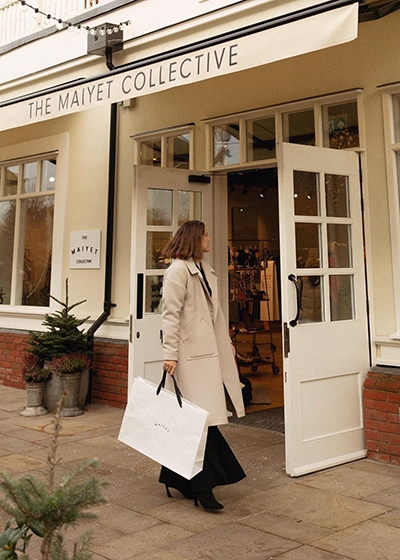
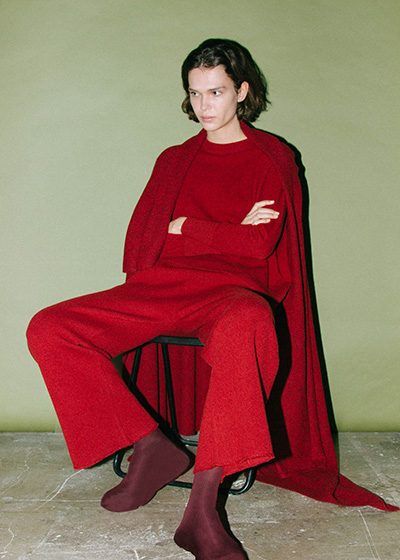
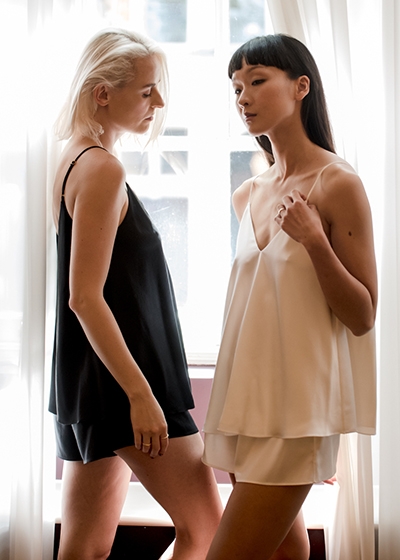
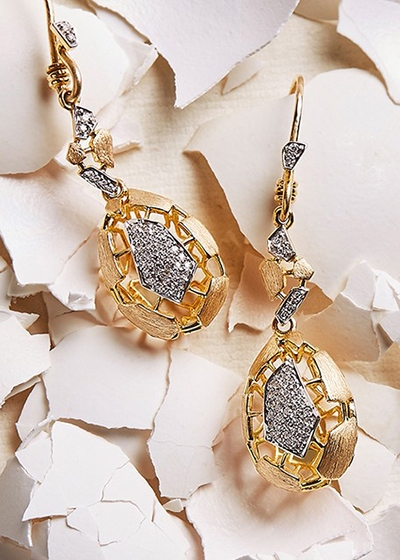
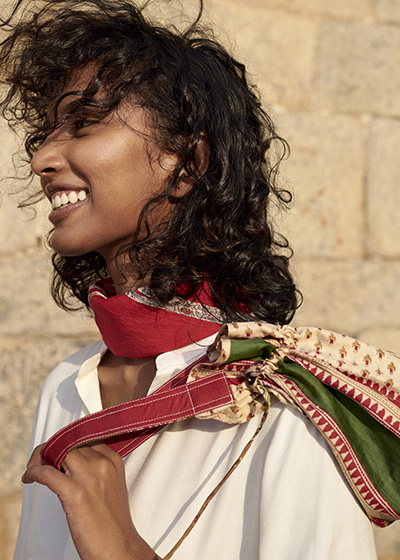
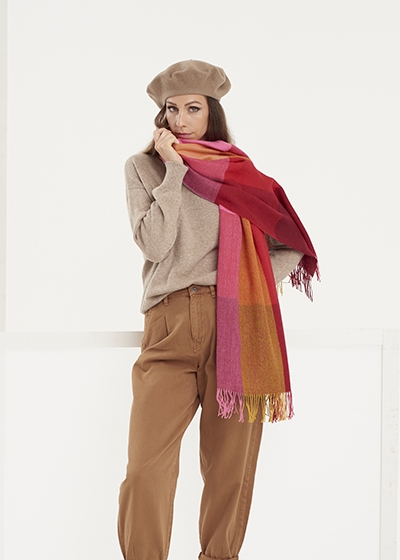
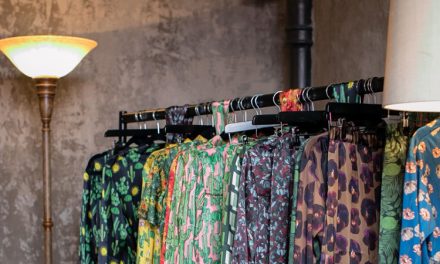
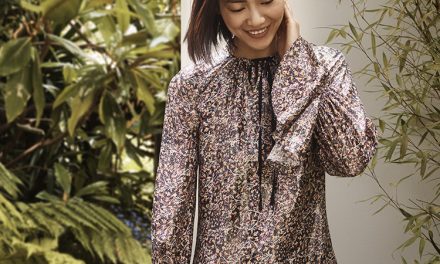
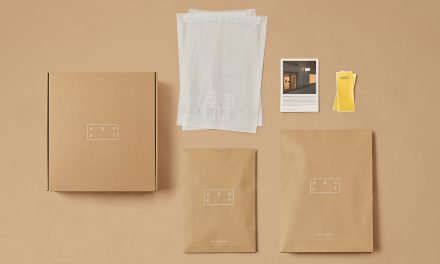
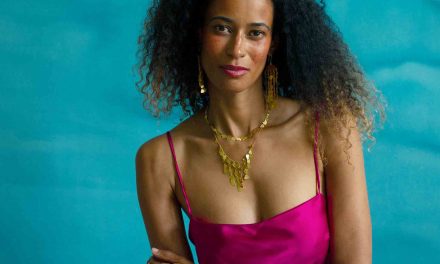
Beautiful piece! :))